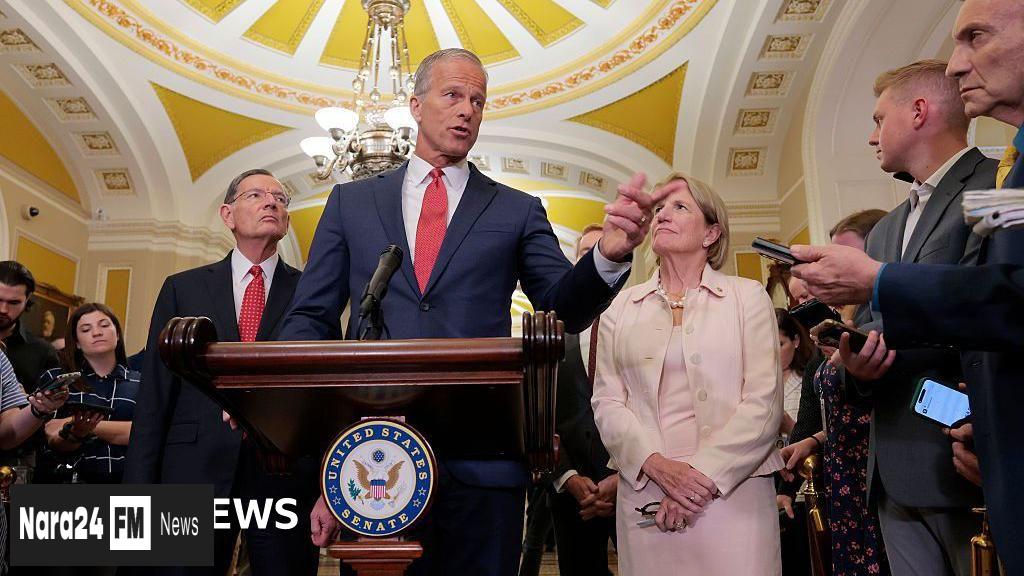The US Senate is currently embroiled in a marathon voting session on a comprehensive budget bill central to President Donald Trump’s agenda. However, the legislation faces significant challenges after weeks of intense negotiations, with Republicans divided over proposed welfare cuts and tax extensions.
Republicans, who control both chambers of Congress, are split on the extent of welfare reductions needed to fund tax breaks outlined in the "One Big Beautiful Bill Act." Meanwhile, Elon Musk, a former close ally of Trump, has criticized the bill, calling it "insane" and vowing to challenge Republicans who support it. The legislation, if passed, could add $3.3 trillion to the national debt, according to recent estimates.
Senators are currently engaged in a process known as "vote-a-rama," debating and voting on amendments to the nearly 1,000-page bill. The session, expected to continue into Tuesday morning, could result in reduced welfare programs and increased national debt. Trump remains optimistic, with Press Secretary Karoline Leavitt stating that the president is "confident" the bill will pass and reach his desk by July 4.
Democrats have strongly opposed the bill, particularly its potential to strip health insurance from millions of low-income Americans. They recently employed a procedural tactic to delay the bill’s progress by having the entire 940-page document read aloud, a process that took 16 hours. Two Republicans joined Democrats in voting against opening debate, citing concerns over the legislation’s impact.
Senator Thom Tillis of North Carolina, one of the Republicans who opposed the bill, announced his retirement shortly after the vote, criticizing the legislation for breaking promises made to voters. The White House dismissed his comments as "just wrong."
If the Senate passes the bill, it will return to the House of Representatives, where fiscal conservatives in the House Freedom Caucus have threatened to block it over budget disagreements. The Senate’s proposal is projected to add over $650 billion to the national deficit, a move critics argue contradicts fiscal responsibility.
As the debate continues, the future of Trump’s "big beautiful bill" remains uncertain, with the potential for significant political and economic repercussions.









Comments (0)
Leave a Comment
Be the first to comment on this article!